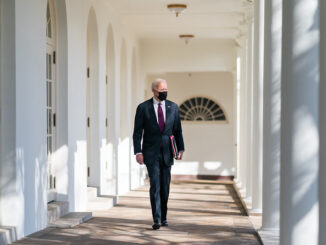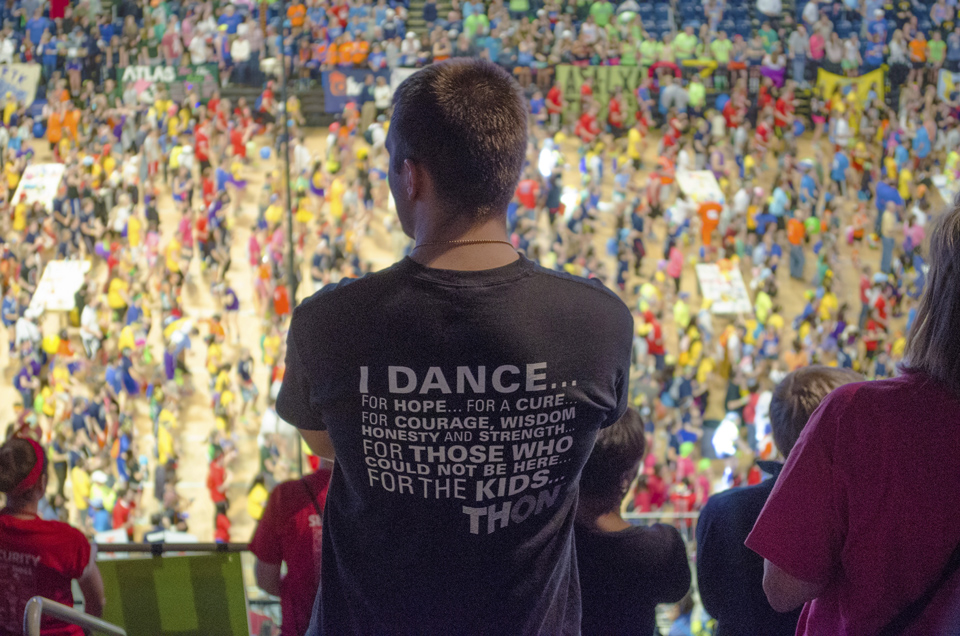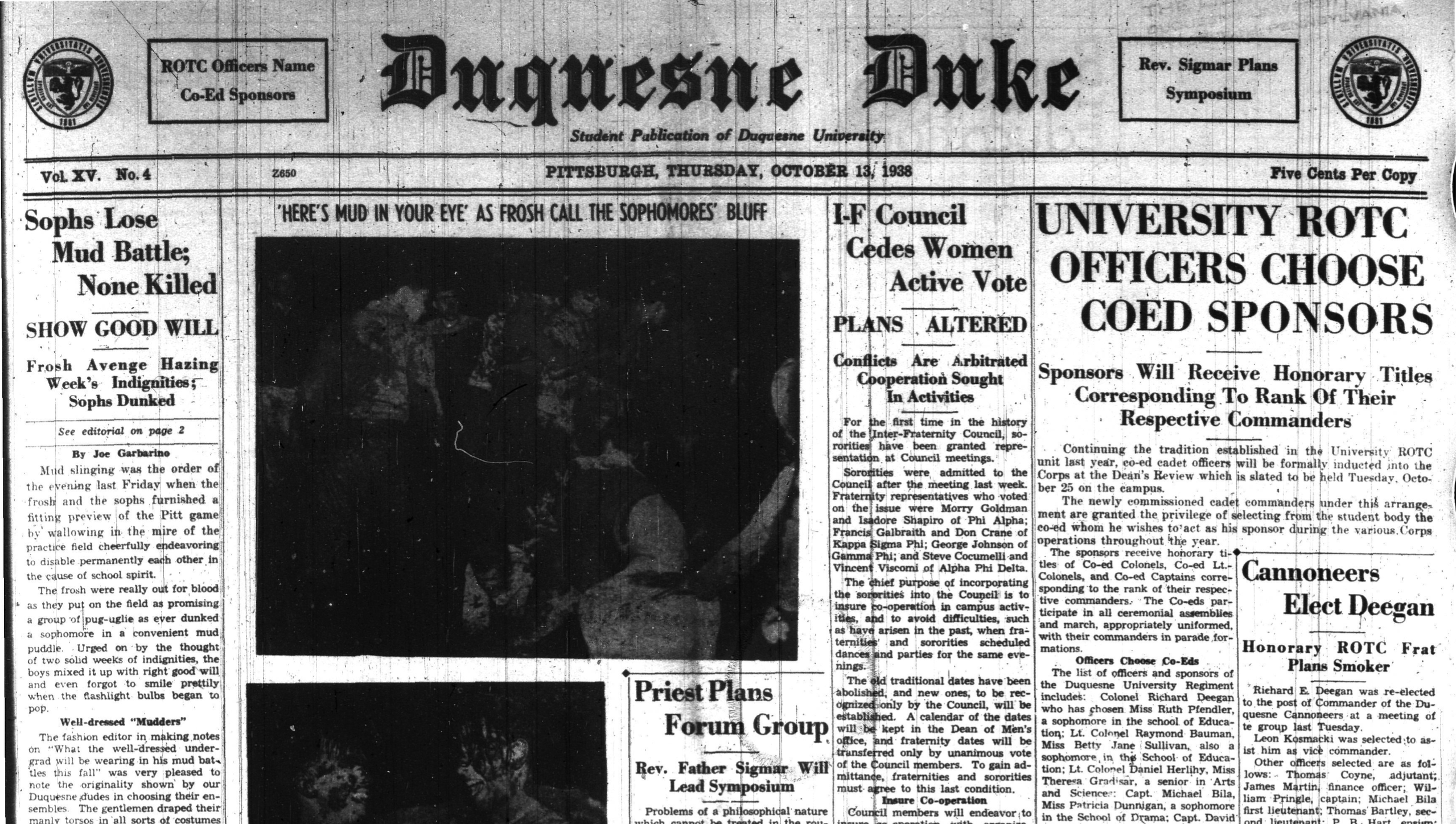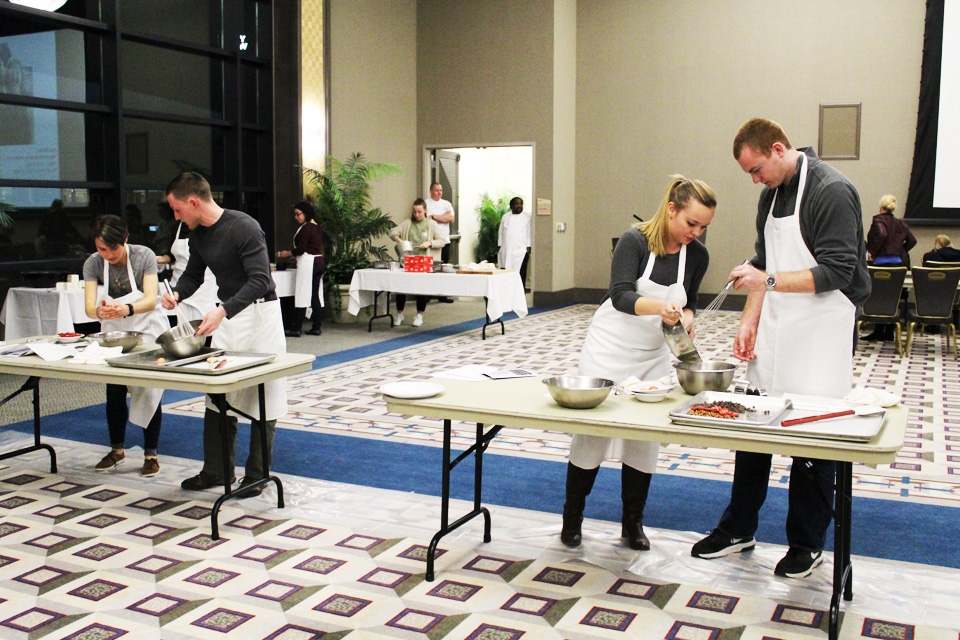
Students bake cookies as a part of the Fair Trade Awareness Week Cookie Wars on Nov. 28 in the Power Center Ballroom.
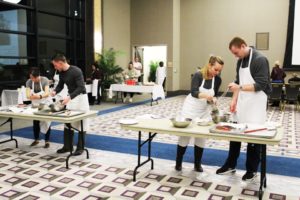
Students bake cookies as a part of the Fair Trade Awareness Week Cookie Wars on Nov. 28 in the Power Center Ballroom.
Megan Garrett | Staff Writer
Duquesne’s Spiritan Campus Ministry began its ninth annual Fair Trade Awareness Week on Nov. 28.
Events at this year’s Fair Trade Awareness Week included Cookie Wars, a baking competition in which students used only fair trade ingredients, along with a Fair Trade Marketplace in the Student Union.
Kate Lecci, a Spiritan minister at Duquesne, said fair trade is a business practice emphasizing fair wages for workers, environmental sustainability and a way to prevent child labor.
“[Fair trade is] not charity, it’s justice,” Lecci said.
Fair trade also cuts out the middleman making the relationship between producer and consumer much closer because people are able to know the backstory behind their purchases, according to Lecci.
Wendy Farmerie, of the New Wilmington, Pennsylvania-based Silk Road Fair Trade Market, said she has travelled to places like Kyrgyzstan to represent the women artisans struggling to make ends meet.
Farmerie said these women need a stable source of income — something fair trade can provide — so they can send their daughters to college and be somewhere safe.
“Every 40 minutes, a girl is kidnapped for marriage,” Farmerie said. The Duke was not able to find that exact statistic, but an article in Newsweek did report that around 40 percent of Kyrgyz women are kidnapped brides.
Most of the women Farmerie sells for are in shelters because of the high rate of alcoholism and domestic abuse in Kyrgyzstan. According to Farmerie, 24 percent of the women there report abuse by their husbands, but more may have never been reported.
Lecci believes that as a Catholic institution, Duquesne is called to help and support these developing businesses by making sure the producers receive consistent income.
Rachel McNorton works with the nonprofit Building New Hope, which specializes in Nicaraguan coffee. It is a worker-owned co-op, with all proceeds returned to the farms for equipment repairs and anything else that they need.
People should buy fair trade goods because seasonal workers are “treated like crap,” McNorton said.
She said seasonal farmers worldwide are given very little pay because they are expected to be inexpensive being that most of them are immigrants. They get a small wage and no benefits, she added.
Along with the Cookie War competition on Nov. 28, Fair Trade Awareness Week featured a screening of the documentary “Food Chains” on Nov. 29 and a “Lunch-and-Learn” lecture on fair trade by Jairo Tenorio, a Nicaraguan artisan coordinator for the Pittsburgh-based nonprofit Women of the Cloud Forest.


